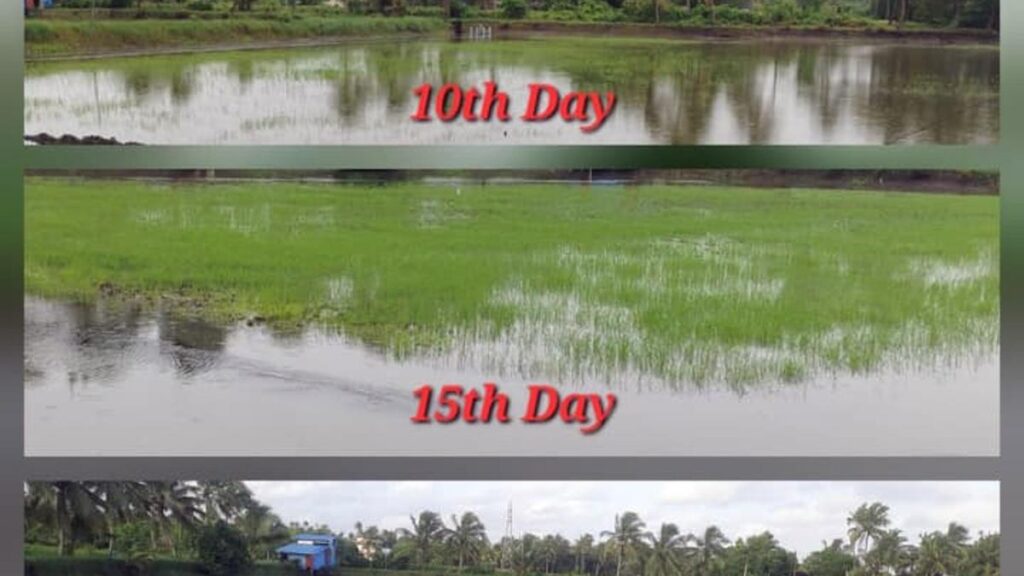
Paddy broadcasting by drone.
| Photo Credit: SPECIAL ARRANGEMENT
In a pioneering step towards modernising traditional agriculture, Kerala Agricultural University (KAU) has successfully conducted a trial run of drone-based seed sowing in the waterlogged paddy fields of Kumbalangi.
The initiative, supported by the World Bank, marks a significant step in tackling the problem of mud and waterlogging that hampers farming in Pokkali fields. Sowing seeds in such challenging conditions has long been a labour-intensive task. However, the recent trial demonstrated that drones can provide a viable and efficient alternative. A drone capable of carrying and dispersing up to 10 kg of germinated seeds was deployed, significantly reducing manual effort and time, said K. P. Sudheer, head of the agri-business incubator at KAU.
The trial was a joint effort by Kerala Agricultural University and the Department of Agriculture in collaboration with Fuselage Innovation, a next-generation start-up operating under the KAU’s agri-business incubation programme.
“Sowing seeds on one acre of paddy field using the drone takes approximately 20 to 25 minutes,” said Dr. Sudheer. This method not only saves time, but also ensures more uniform seed distribution and improved crop establishment. Compared to traditional methods, it enables efficient use of seeds, saving up to 10 kg of seeds per acre, he added.
Germinated seeds
Germinated or sprouted seeds have proven to be best suited for aerial sowing, allowing better anchorage and early growth in saturated soil. Encouraged by the success, the KAU is now conducting trials with drones of higher capacity, aiming to further reduce the time and effort required in large-scale sowing operations.
Dr. Sudheer noted that the initiative is part of the KAU’s broader mission to reduce the physical burden on farmers by leveraging cutting-edge agricultural technologies.
“Drone applications like these can revolutionise paddy cultivation, especially in the Pokkali fields and the low-lying regions of Kuttanad, where conventional methods are often constrained by natural conditions,” he added.
The move is expected to have far-reaching implications for sustainable rice cultivation in Kerala and potentially across other States with similar agro-climatic conditions.
Published – July 30, 2025 07:37 pm IST


